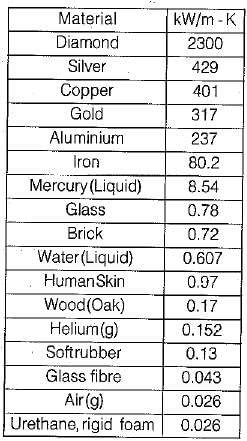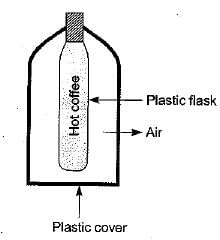Test: Basic Concepts of Heat Transfer - 1 - Chemical Engineering MCQ
10 Questions MCQ Test - Test: Basic Concepts of Heat Transfer - 1
Which of the following material has least thermal conductivity at room temperature?
A closed container filled with hot coffee in a plastic flask is in a room whose air and walls are at a fixed temperature. What are the possible modes of heat transfer process that contribute to cooling of coffee?
A satellite float in deep space with very high velocity. It will continuously lose heat by
Consider the following statements pertaining to heat transfer processes:
1. Heat transfer is directly linked with the transport of medium itself, i.e., there is actual motion of heated particles during convection.
2. The material medium between the heat source and receiver is not affected during the process of heat transmission by radiation.
3. Heat transfer in liquids and gases is essentially due to radiation.
4. In gases and liquids, conduction is due to the collisions and diffusion of the molecules during their random motion.
Select the correct answer:
All the three modes of heat transfer are involved in
The essential condition for the transfer of heat from one body to another is.
Consider the following statements:
1. The thermal conductivity of a material is it’s ability to conduct heat.
2. The thermal conductivity can be defined as the rate of heat transfer through a unit thickness of the material per unit area.
3. In solids, heat conduction is due to lattice vibrational energy as well as energy transported via free flow of electrons.
4. Convection involves combined effect of conduction and fluid motion.
Which of the above statements are valid?
Temperature of steam at around 540°C can be measured by
Cork is a good insulator because it has
















